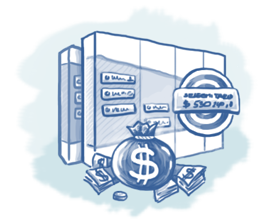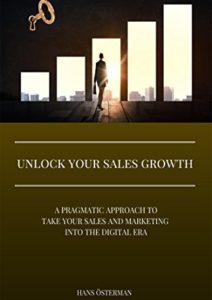One vital key to getting the most ROI from your CRM tool is to ensure your CRM application mirrors your sales process. Regrettably, traditional CRM solutions have not done this, and the resulting extra work and “workaround” has been a nightmare for sales.
Today, however, there is every reason for CRM to mirror a sales process and to gain rapid ROI for a CRM solution—and there exist CRM solutions that make it very easy.
 When CRM Tool Is Not Reflective of Sales Process
When CRM Tool Is Not Reflective of Sales Process
The costs of a CRM application not following a sales process are often quite hidden—but are nonetheless substantial. In the past CRM solutions were purchased and implemented for the purposes of coordinating customer relationship activities across departments, and monitoring sales activities. The sales process in many companies was seen as important, but something totally separate from CRM.
Hence, as the sales reps were moving sales along the sales pipeline, they had to resort to their own devices for placing sales in their correct sales process stage, for retrieving data pertinent to the sale at a particular stage and for staying on top of their own sales in the pipeline.
Salespeople used all different methods to accomplish these tasks. These included their own spreadsheets, notes, even hard-copy or handwritten records. The liabilities of these were many—not the least of which was the salesperson running the risk of omitting important actions just because records were out of sight and easily forgotten.
The copious reporting that salespeople were compelled to do—both inside and separate from CRM—never aided them in controlling their own sales. This was an additional wasted valuable time for the sales reps.
But probably the most crucial issue was that data the sales reps were gathering within their own CRM Tool could not be shared. Sales management had to spend time interacting with salespeople to find out where particular sales were, and when they were expected to come in. If another salesperson had to take over a sales cycle, chasing up the data on that cycle was problematic at best. And of course, forecasting was always a risky venture as the real data could not be easily accessed and analyzed.
Just looking over these few issues, you can see that the ROI for a CRM tool not following a sales process would be negative; the CRM solution was constantly costing the company untold funds that were never recovered.
Following the Sales Process
Now let’s take a look at what happens when a CRM solution does mirror the sales process of a company. Beginning right with the salesperson, for the first time a CRM application is intuitive and can be easily followed. His or her entire sales pipeline is visible. Sales cycles will not be lost, tabled and forgotten amid the confusion of makeshift tracking solutions. The next actions to be taken with a sale can be readily seen. A day’s “to do list” can be compiled in the morning with confidence that nothing important is being left out.
The reporting that salespeople must do is greatly reduced with the right CRM tool, as it’s only the necessary and pertinent data being entered into CRM. Also since the information is easily accessed by sales management or anyone else who needs it, salespeople don’t have to “re-report” verbally or in writing on things they’ve already reported on.
 What of sales management time previously spent interacting with salespeople to chase up current numbers, and data for forecasting? This is time now totally recovered; the sales manager can access all of the needed data right in CRM. And it is accurate data based on real figures and computations, instead of guesswork on the part of salespeople. This, of course, has a substantial positive impact on sales forecasting.
What of sales management time previously spent interacting with salespeople to chase up current numbers, and data for forecasting? This is time now totally recovered; the sales manager can access all of the needed data right in CRM. And it is accurate data based on real figures and computations, instead of guesswork on the part of salespeople. This, of course, has a substantial positive impact on sales forecasting.
How does all this affect CRM solution ROI? The answer is obvious; a CRM tool following a company’s sales process is going to pay for itself rapidly and many times over, just based on the factors above. This doesn’t include the ramifications for other areas of the company such as tech support, customer service, company executives and even Marketing who previously couldn’t find and utilize vital sales data within CRM; in many cases, this kind of information wasn’t even available to these departments.
Make sure your CRM solution mirrors your sales process—and your ROI for your CRM solution will be increased many times over.
What kind of CRM solution are we talking about? Sign up for one of our free webinars and find out.











